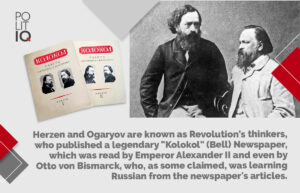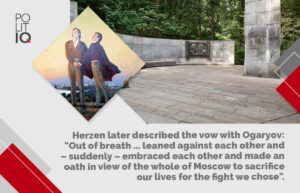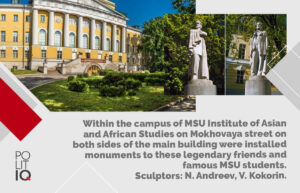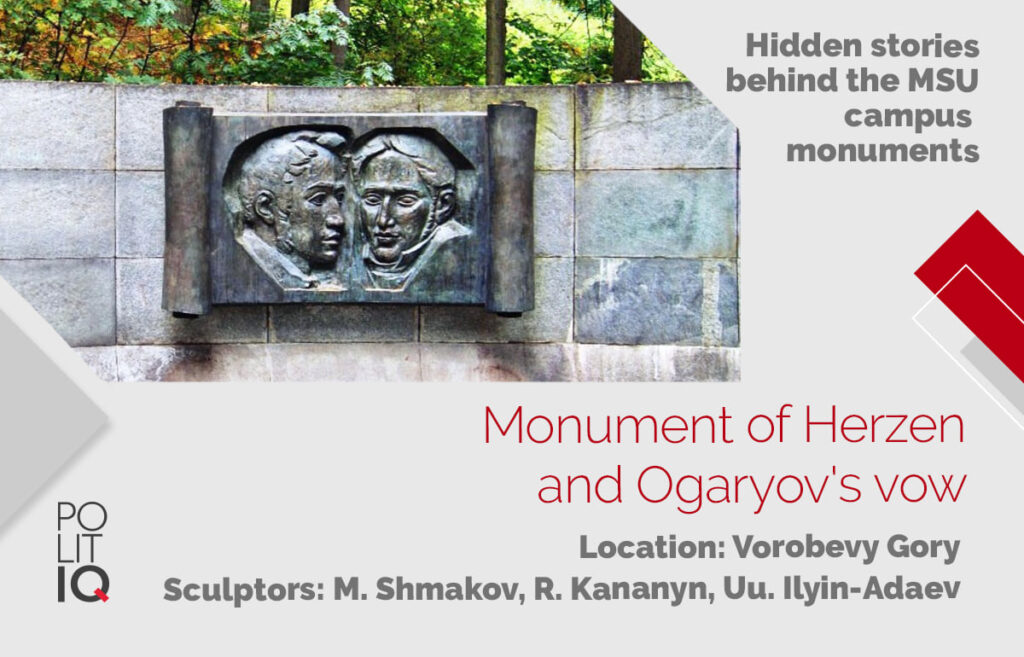Can you recall a monument to a great Russian poet? Or composer? Indeed, it is not that hard to do. Well, then how about a monument to a friends’ vow? Admit, this one is slightly more difficult. But not for Lomonosov MSU students!
⠀
This one-of-a-kind monument is located on the Sparrow Hills, in immediate proximity to Moscow University. Friends of which we are going to tell you are none other than outstanding Revolution’s thinkers, MSU students, and lifelong friends – Alexander Herzen and Nikolay Ogaryov.
⠀
Alexander Herzen (the one awakened by the Decembrists, as Vladimir Lenin once put it) first met Ogaryov in his father’s house, when little Nikolay was going through the painful loss of his grandmother. Parents asked Alexander to play with Nikolay and help him to get his mind off of the tragedy. At the time, boys were only 12 years old.
⠀
Years later, this acquaintance evolved into a firm friendship. Herzen and Ogaryov were dreaming together of a Republican Russia. During one of their promenades, they accidentally, in the heat of such a conversation, vowed to each other to change Russia’s destiny for the better. In 1978 the monument to their vow was installed in the exact place where the vow was first given.
⠀
They entered the Moscow university together and, in 1831, established a revolutionary student club, which was given their names. Members of the club discussed the works of French utopian socialists and wore scarfs of the 1789 French Revolution’s tricolor as a mark of distinction.
⠀
After an incident involving Ogaryov singing La Marseillaise in front of the Moscow Maly Theatre, the gendarmerie became interested in the club’s activity. Friends’ audacious written exchanges on the Russian monarchy’s crises popped up.
⠀
Herzen was exiled to Perm, and Ogaryov – to Penza. A chance to meet friends again got in London years later. There they began to live together and initiated an ideological work to foster Republican transformations in Russia.
They kept their vow. The Revolutionary Democratic movement in the 19th century would have been absolutely different without the contribution of these significant political and philosophical figures.





29.11.21


